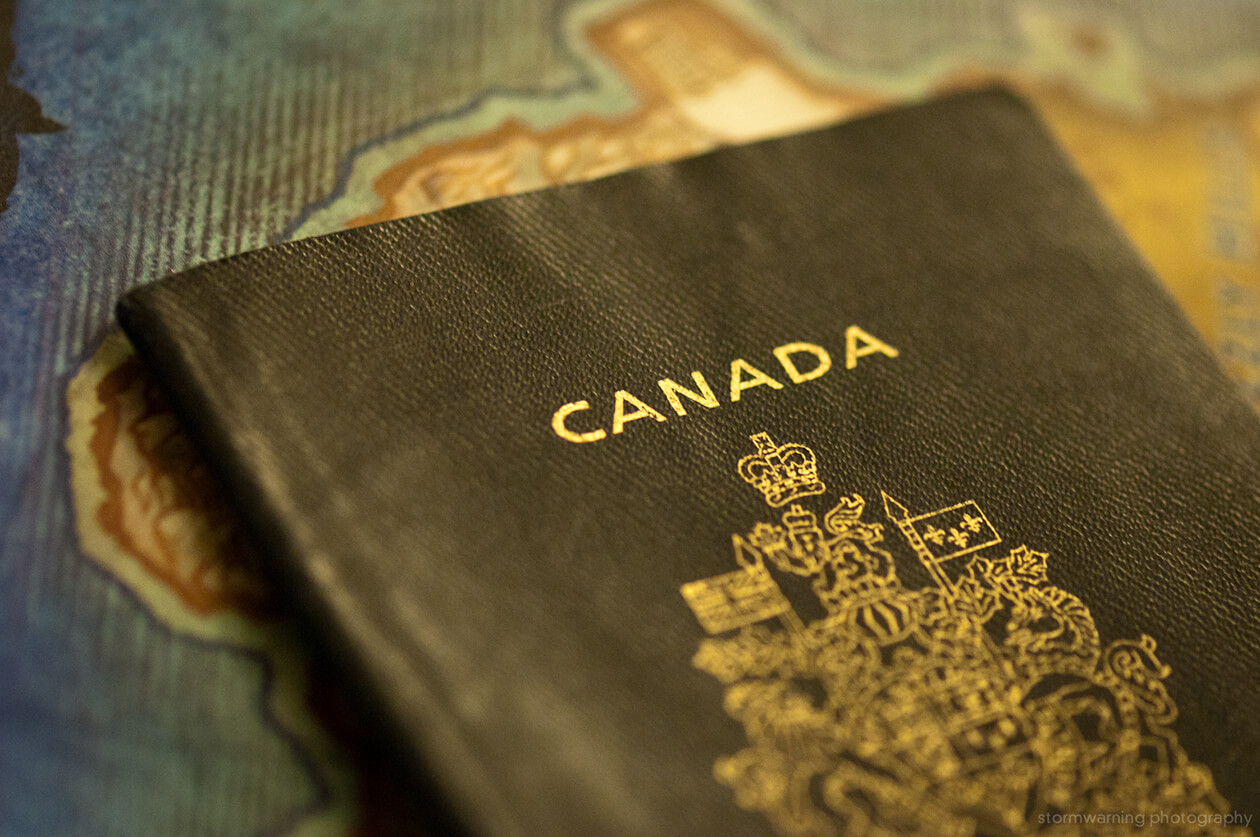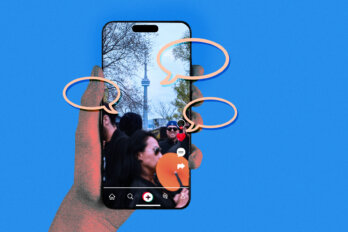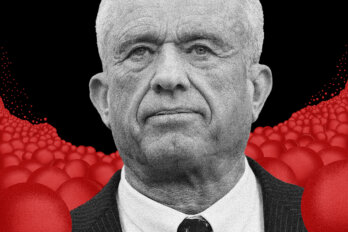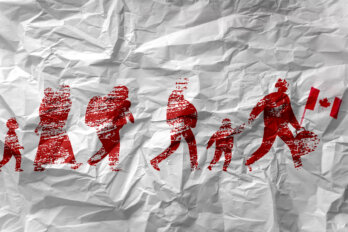
Nobody questions me at borders. I’m a seventy-year-old white woman with the WASPiest face ever. I’ve grown accustomed to being invisible, thanks to my age, and that suits me fine. Let me glide through barriers, and be extra nice to the bored airport staff selling overpriced sandwiches, now that I no longer require a flirt-shield.
In other words, I was not prepared for being banned from flying home.
It was about noon in the vast Mexico City International Airport. I was alone, heading back to Toronto a week early from our vacation due to sickness—an intestinal complaint that wouldn’t settle down. My husband and I had been scheduled to fly from Oaxaca to a more remote spot on the coast for our final week, but I convinced him to go ahead without me. I just wanted to go home and get better.
I hadn’t eaten a meal for three days and was in some pain, but the early-morning flight from Oaxaca had been smooth. As I waited near the gate for my connecting flight to Toronto, I was in armadillo travel mode, just zombie-ing along. Then I heard my name called over the PA.
I went to the desk. An agent took my boarding pass, opened my passport and slid it through the little verifying gulley of their machine. She frowned at the monitor, slid it through again. Then she got on the phone. “I’m just looking for my supervisor,” she told me.
I wasn’t too concerned. There had been a delay checking into Aeromexico when I left Toronto—a mysterious red flag on my passport file. But it was obvious that I was who my passport said I was, so they let me board. That was before Trump had declared the immigrant ban on travellers from seven majority-Muslim countries. It was also before the US judiciary successfully overruled that ban. I was flying just when international borders had a more electrical charge than usual.
Meanwhile, my fellow passengers were boarding. It was twenty minutes till take-off. My gut flared with pain. I tried not to act nervous and “guilty,” although guilty of what, I didn’t know. The supervisor arrived in his white shirt and tie and began talking on the phone. “Okay. I’ll let her know,” he murmured before hanging up. With downcast eyes and professional detachment he said, “I’m sorry but we can’t let you board your flight.”
“Why? Why not?” I yelped. I didn’t add, “Aeromexico let me fly.”
“Your passport has been reported lost or stolen.”
“But . . . it’s right there in your hands—you can see that.” I pointed at my face. “It’s me.”
“I know, but your file shows a problem, and we can’t let you fly without a valid passport.”
(He didn’t mention, as I later learned, that the airline could be fined up to $6,000 for doing so.)
I suddenly felt myself old and small and powerless in a very big airport, in a very big and unfamiliar city—more than 21 million people, or roughly two thirds of Canada. “But I have to get home,” I pleaded. “I’m sick.”
“I’m sorry. You’ll have to sort it out with the Canadian Embassy,” said the unhappy supervisor.
“But I have nowhere to stay . . . ” Panic welled up.
“I suggest you go straight to the embassy now, and sort it out first.” The no-eye contact continued.
I did not cry. I did not fall to the floor weeping. Instead, I turned away, shouldered my knapsack, laptop and bag, and threaded my way through the bowels of the airport to security, where they cheerily waved me back into the free-range part of the airport.
I had just read that in the hours after Trump’s immigration ban was imposed, 109 people already in transit to the US were turned away. But that was the US, right?
Okay, a cab to the embassy. But which cabs? I approached two women in uniforms, chatting in Spanish. “Take the trescientos cabs at Puerta 10,” they said. “Not the others. The trescientos are safe.” I found the right stand, and the yellow non-bandit cabs, and began the first of several rides through this clamorous capital city to the Canadian Embassy.
For some reason I had imagined our embassy as an airy facility where the door would open to a kindly looking man or woman sitting behind a desk. They would beckon me to sit opposite them in a folkloric armchair. They would welcome me to Mexico City and ask what they could possibly do to help.
Instead, I arrived at a dark brown, windowless, shuttered building with the appearance and dimensions of a fortress. It was also under construction and surrounded by chain-link fences. It was also closed for lunch until 2:30 p.m. I waited. At the entrance, a guard, barely visible, stood behind dark-tinted glass—I spoke to him through a rash of holes and he said, “Come round to the other side.” I did. There I found a thick metal door, which he opened, beckoning me in. He took my phone and laptop and put my bags through a scanner. I proceeded past the “reception” area (which was not receiving), through a corridor of construction to arrive at an over-lit room with rows of padded, bolted chairs facing another glass window—a passport office.
Behind the window was a young man. Between us was a sliding metal tray for receiving and dispensing documents. No one else was in the room.
I put my face close to the glass and told my story. The young man said they would make inquiries into the matter, and that I might require a new emergency passport. This could not happen until the following day. And the embassy closed soon, at 4 p.m. I should have photos taken, just in case. Did I have a guarantor handy, here in Mexico City? Someone who had known me for several years?
Miraculously, I did. Two friends we had stayed with in Oaxaca were arriving in Mexico City that same afternoon, and I remembered the name of their hotel. A stroke of good luck, my first.
It was chilly out—February in Mexico City. I retrieved my phone and left the fortress, wondering how to order a taxi when I had no idea where I was. Nearby, a gentleman who had come to pick up his daughter’s passport was stabbing at his phone, calling an Uber. (Everybody Ubers in Mexico City, it seems.) He tried to help me order one on my phone, to no avail. Finally he offered me a ride in his car, which was headed in the same direction.
Ah, this is how you get kidnapped, I thought, by the well-dressed Mexican gentleman who haunts the embassy sidewalk, picking up desperate lost souls like me. But he seemed nice. His daughter lived in Vancouver. He was a retired professor. I was seventy, and obviously not packing gold bars or cocaine in my knapsack. I got in the cab with him.
On the way I called the hotel, which had a room available (more luck). Twenty minutes later our car pulled up in front of a hotel/B&B in the gentrified Condesa area. A man came racing out thru the locked front gate and grabbed my hand. “Marni!” he said, “come in, what a problem you are having!” It was Viktor, the concierge, who clasped my hand in both of his. Wow, I thought, this is more like it. Why can’t airline agents and consuls be like this? He led me into the lobby and listened sympathetically to my tale of woe. He showed me to my room, which was bright, clean, and quiet. “I’ll get on the phone and book you a new flight for tomorrow,” he said, and did just that.
He directed me down the street to a deli/eatery where I ordered fresh ginger tea. The food looked great, but I wasn’t eating. My gut was still burning. Outside the restaurant was a circular park with a splashing fountain. People were sitting around it, drinking green smoothies. Beside the restaurant was a tailor’s shop where men worked at sewing machines. Life was being lived, I was safe, I would fly home the next day at midnight. Unlike a thousand, ten thousand other less fortunate people, my disenfranchisement would last no more than thirty-six hours. Still, the ten thousand were on my mind. Our freedoms are fragile, as it turns out.
I met my friends that evening, who would go to the embassy with me to vouch for my identity. The next morning, I had some photos taken—rather angry and unbecoming ones. At the embassy, I learned that my “lost or stolen passport” had been . . . a mistake. A clerical error, or a miscopied number. Still, they questioned my friend and guarantor. When had we met? What was the nature of our relationship? They also phoned another friend in Toronto, a novelist. “What does Margaret Jackson look like?” (My official first name is Margaret, another point of confusion.) My friend went into considerable detail describing me. I wish I could have overheard it: “She has this little chuckle that gets worse when she’s nervous . . . ”
Later that day, after more Ubering, I received an Emergency Document, which would allow me to fly home before it expired. Then I would have to organize a new passport.
“Is someone going to apologize for this?” I asked through the glass. An older woman emerged from the bowels of the consulate to say a few words to me with a conciliatory smile. But I was not receiving smiles. “Just doing our jobs,” their faces said.
During my next trek through the airport, everyone looked askance at my flimsy “special document.” Was I trying to get on a plane with a page ripped out of Vanity Fair? My sense of being illegitimate was now quite embedded. But close to midnight I made it to the right gate and sat down. My hurdles have all been hurdled, I thought. Then I watched the airline agent gaze at her computer, pick up her mic, and say, “Would passenger Margaret Jackson please report to the gate?”
I went to the counter wearing an opaque expression. Okay, I thought, I’m going to have to stay in Mexico for months like Malcolm Lowry, and become a mescal addict. The agent took my boarding pass and studied her computer for a long suspenseful moment. “Would you mind very much if we switched your seat?” She asked. “There’s a family of four who want to sit together.” Yes, I said, I’ll sit anywhere, I’ll crouch in the washroom, no problem.
And then I was on board.
The only challenge for the next five hours was the woman beside me who consumed cartoons all the way home while practicing the yogic Breath of Fire, which is rather turbulent and noisy. No matter; I was going home to my tolerant country. I was a legal traveller. I had experienced a day and a half of being banned from flying, which is not to be confused with a year in a detainment camp, or with living every day under the shadow of deportation.
But I think the feeling of being illegitimate, of having your identity scrutinized and questioned, runs deep in all of us. That is why borders—which are nothing more than imaginary political boundaries—are such anxious sites. An experience like this stirs the fear we have that we are no one, really. That we don’t deserve our rights. It doesn’t take much to topple our sense of safety—or, in the case of President Trump’s immigration ban, to prey on our fears instead of our strengths.




